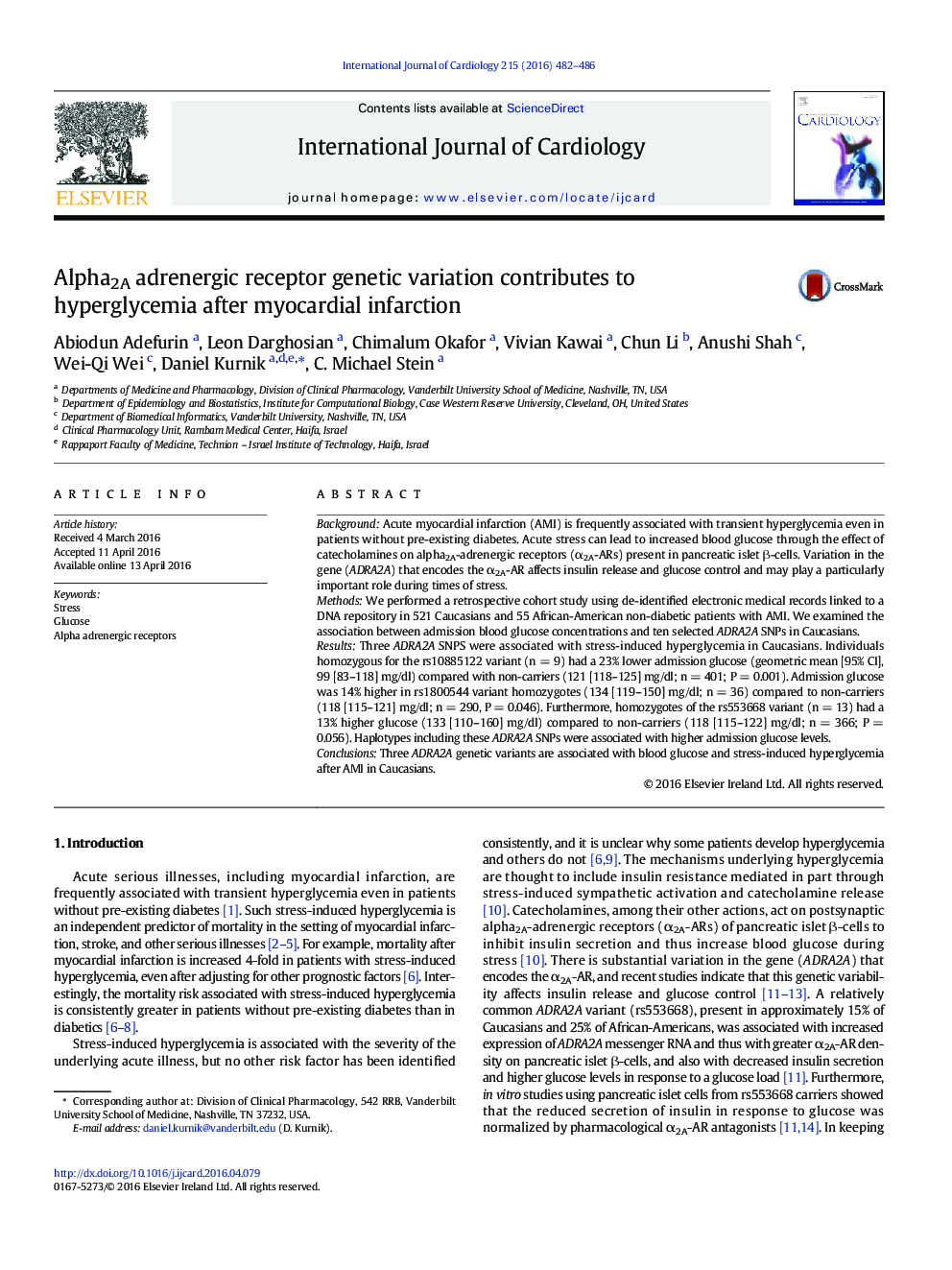| Article ID | Journal | Published Year | Pages | File Type |
|---|---|---|---|---|
| 5963988 | International Journal of Cardiology | 2016 | 5 Pages |
BackgroundAcute myocardial infarction (AMI) is frequently associated with transient hyperglycemia even in patients without pre-existing diabetes. Acute stress can lead to increased blood glucose through the effect of catecholamines on alpha2A-adrenergic receptors (α2A-ARs) present in pancreatic islet β-cells. Variation in the gene (ADRA2A) that encodes the α2A-AR affects insulin release and glucose control and may play a particularly important role during times of stress.MethodsWe performed a retrospective cohort study using de-identified electronic medical records linked to a DNA repository in 521 Caucasians and 55 African-American non-diabetic patients with AMI. We examined the association between admission blood glucose concentrations and ten selected ADRA2A SNPs in Caucasians.ResultsThree ADRA2A SNPS were associated with stress-induced hyperglycemia in Caucasians. Individuals homozygous for the rs10885122 variant (n = 9) had a 23% lower admission glucose (geometric mean [95% CI], 99 [83-118] mg/dl) compared with non-carriers (121 [118-125] mg/dl; n = 401; P = 0.001). Admission glucose was 14% higher in rs1800544 variant homozygotes (134 [119-150] mg/dl; n = 36) compared to non-carriers (118 [115-121] mg/dl; n = 290, P = 0.046). Furthermore, homozygotes of the rs553668 variant (n = 13) had a 13% higher glucose (133 [110-160] mg/dl) compared to non-carriers (118 [115-122] mg/dl; n = 366; P = 0.056). Haplotypes including these ADRA2A SNPs were associated with higher admission glucose levels.ConclusionsThree ADRA2A genetic variants are associated with blood glucose and stress-induced hyperglycemia after AMI in Caucasians.
